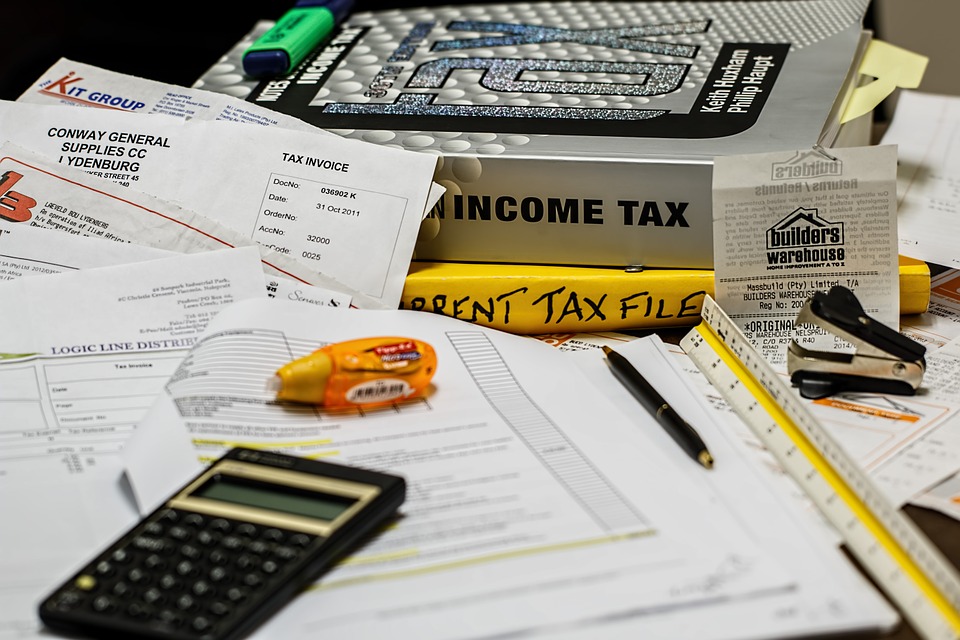Business and Economy
1st package to correct ‘long-standing inequity’ in PH tax system

This package gives workers’ annual income tax-free rate for the first PHP250,000. (Pixabay photo)
MANILA— After more than 300 presentations about the gains of tax reforms, efforts of Department of Finance (DOF) officials were not wasted.
Before 2017 came to a close, President Rodrigo R. Duterte signed into law the first package of the tax reform program, which is for implementation by January 2018.
This package gives workers’ annual income tax-free rate for the first PHP250,000.
Finance Secretary Carlos Dominguez III, thus, dubbed the signing of the measure as the Duterte administration’s “biggest Christmas and New Year gift” to Filipinos.
He said the approval and eventual signing into law of this measure “is a sign of maturity for our country”, noting that it materialized without pressure from any entities overseas.
Prior to this, the country’s tax system was adjusted in 1997 as a requirement for the country’s exit from the supervision of the International Monetary Fund (IMF) that year.
The first of the five-package tax reform program “will, once and for all, start fixing the structural problem with our tax system that has been less than efficient,” Dominguez said.
He said the package “corrects the long-standing inequity of our tax system by reducing income taxes for 99 percent of income tax payers.”
“This tax reform will also raise revenues needed for us to have a positive change for every Filipino’s lives,” he said.
While estate revenues will be hurt by the reduced income tax collection, this impact will be countered by hikes in excise taxes of several items like fuel and vehicles.
Uptick in oil prices will hurt the lower income families but the government has decided to give out a one-year targeted cash transfer to the lower 50 percent of the society, to be funded by higher excise taxes.
Bulk, or 70 percent, of the income tax reform gains, however, will be used to fund the infrastructure program called “Build, Build, Build”, which has a programmed budget of at least PHP8.4 trillion until the end of the current government’s term in mid-2022.
Other gainers from the tax reform bid are the education, health and social services sectors.
In the coming months, DOF officials will file the second tax reform package, which involves the cut in corporate income tax through the rationalization of fiscal incentives.
Dominguez said the second package would ensure that the tax system is fair to all tax payers.
“We will simplify the corporate income tax system to make it easier to comply for small corporate,” he said.
Aside from changes in the tax system, other measures that economic managers will pursue include administrative reforms, implementation of national identification and rice tariff, right-sizing of employees in government and further improvement in ease of doing business.
“With the people’s support and understanding all these reforms will result in more and better jobs, lower prices and brighter future for every Filipino,” Dominguez said.
DOF Undersecretary Gil Beltran said measures towards improving ease of doing business in the country involve the participation of various government agencies.
For one, the Bureau of Customs (BOC) is set to launch the national single window to connect 76 agencies to BOC’s system.
The Securities and Exchange Commission (SEC) is also fully operating the credit information system to have the needed details on businesses’ credit scores.
DOF recently spearheaded the launch of the Philippine Business Database System, which will be linked to SEC’s automated corporate registry system.
Beltran said they are also hopeful for the eventual passage of the proposed national warehouse receipt law, which would be implemented by the SEC and is now being deliberated by both the House of Representatives and the Senate.
Automation of all local government units (LGUs) is also underway, he said.
DOF is still determining the number of LGUs that is not yet automated but Beltan said priorities are the big ones of the around 1,800 nationwide because of bulk of transactions they handle.
“All these things will contribute towards a better ease of doing business,” he added.





















